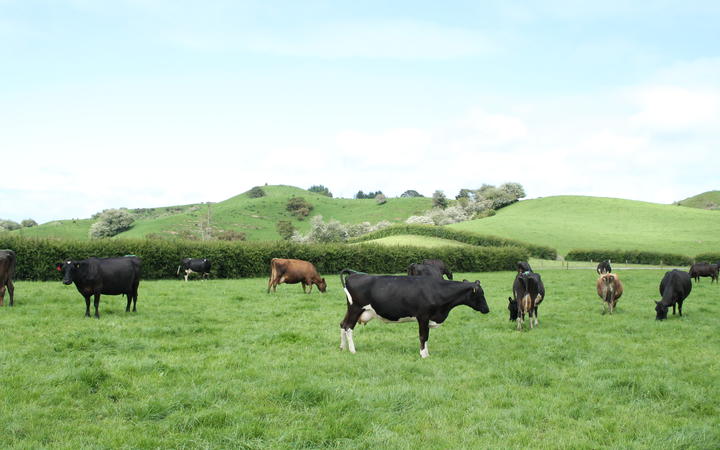
File image: Waikato dairy farm Photo: RNZ/Carol Stiles
NIWA’s latest hot spot watch shows things have got really dry in the region within the last couple of weeks.
The driest soils across the North Island, compared to normal for this time of the year, are in Northern Waikato – and it doesn’t look like the situation will improve anytime soon, with no decent rain forecast.
Bart Van De ven is a sharemilker in Springdale, near Morrinsville.
He said he’s only had 55mm of rain since Christmas, which means he had to dry off his heard six weeks early.
“There’s almost no real rain forecast for another 18 days, so we’ll be well into May before we get our first real proper rain for the year,” he said.
“There’s a little bit of cover there, our average pasture cover at the moment is about 1600 DM/ha. It wouldn’t really matter if it was the start of March, but it’s now almost the start of May, so we’re about two months behind.”
Van De ven said organising this year’s feed budget was “pretty scary” ahead of the calving season.
“We start calving on the 15th of July, we try and have an average pasture cover of around 2300 DM/ha on the first of June.
“We’ve probably got about 35 days to do that, we’ve got cover at 1600 DM/ha at the moment, and we’re definitely not going to get there.
“So, we’re basically hanging on and hoping that the weather’s going to do the job for us.”
Van De ven said he was considering buying feed for the first time ever, saying the situation was “historic”.
“I’m about ready to buy in feed for the first time ever really. So yeah, it’s historic.”
Further west in Orini, dairy farmer Allan Crouch said they’re in the midst of a green drought.
“We’ve got supplement cows in good condition,” he said.
“So as long as we get rain, around early May, and I’m talking significant for us – it’d be 100mm to 125mm or even 155mm of rain to get us back to square one.
“It won’t be too drastic, but if it’s much later than early May, then it’s going to start impacting on your farm management.
“The cows would have to get knocked back to maintenance feeding, rather than putting a better condition on, we may need to start looking at importing a little bit of supplements, a bit of pumpkin or something to lengthen the rotation and try and maintain the cover that we’ve got.”
Allan Crouch has been farming in Orini since 1987 – he said in the last 15 years the seasons had begun to get more severe, which meant he’s had to adapt farming practices.



